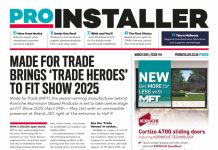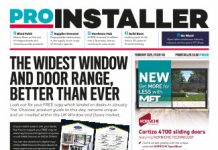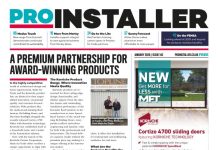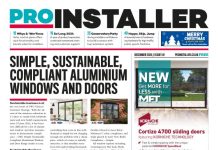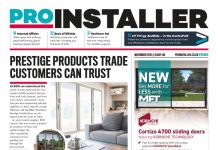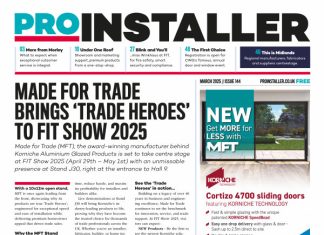Hurst Plastics is getting behind this year’s Fire Door Safety week and encouraging the industry to spread the message about the vital role of correctly specified and installed fire doors in saving lives and protecting property.
In the run-up to this year’s Fire Door Safety Week, which takes place between 25 September and 1 October, Hurst Plastics is inviting customers, specifiers and building owners to contact its resident fire door expert Howard Wilson to field any questions they may have surrounding fire doors.
Mark Atkinson, Hurst Plastics’ Sales Director, says: “There are around three million fire doors sold every year and sadly we know that many of them are not specified or installed correctly. Fire doors are instrumental to safeguarding lives and, in our commitment to best practice, we want to help inform people about the importance of specifying, installing, using and maintaining them properly. We’re urging anyone responsible for fire doors to get in touch with our Composite Manager Howard and ask any technical questions they may have.”
Composite fire doors are subject to more complex legal requirements than standard pedestrian doors and specifiers are responsible for ensuring that their specification is correct.
Hurst Plastics has a team of fire door specialists to help specifiers choose the most appropriate products to suit individual applications and meet industry standards.
Howard Wilson, Composite Manager, added: ”‘Our technical knowledge is at the heart of what we provide. Reducing the impact of fires starts with compliant products and an understanding of the legal requirements. The specifier has a legal responsibility to get their specification right and we are able to guide them through every stage of their composite door requirements. Our aim is to steer customers through the red tape, including current European legislation and building regulations, to give them complete confidence in their specification.”
Hurst has campaigned to educate specifiers about the importance of using the correct closing devices for composite fire doors. Concealed closers are widely specified, however some are not compliant to BS EN 1154 and as such are not suitable for all applications. It’s important to be aware of the requirements of Part B of Building Regulations to ensure that the correct closing device is specified. Hurst supplies a variety of closers for all applications and can provide advice on the most suitable products to satisfy requirements.
The range of Hurst composite fire doors includes FD30, FD30S and FDSBD. Each door has been audited and certified by Warrington Exova BM Trada – an independent third party which assures the quality, performance and traceability of every component of the fire door. The fire door range has been fire and smoke tested for up to 30 minutes by Warrington Exova and each door conforms to BS476: Part 22: 1987. An FD60 door is also available for more demanding applications.
The doors guarantee the highest levels of security and satisfy the requirements of the Q-Mark enhanced security scheme. The doors also comply with PAS023/PAS024 security accreditation and the requirements of Secured by Design.
The 44mm thick Hurst composite fire door leaf consists of a robust, high performance core, which incorporates fire retardant phenolic foam and a high-density hardwood perimeter to provide a full half hour fire rating. The core is faced in a GRP colour finished skin, which is outwardly indistinguishable from Hurst’s standard composite doors.
Howard Wilson can be contacted at Hurst Plastics by calling 01482 790790 or emailing howard.wilson@hurst-plastics.co.uk.


